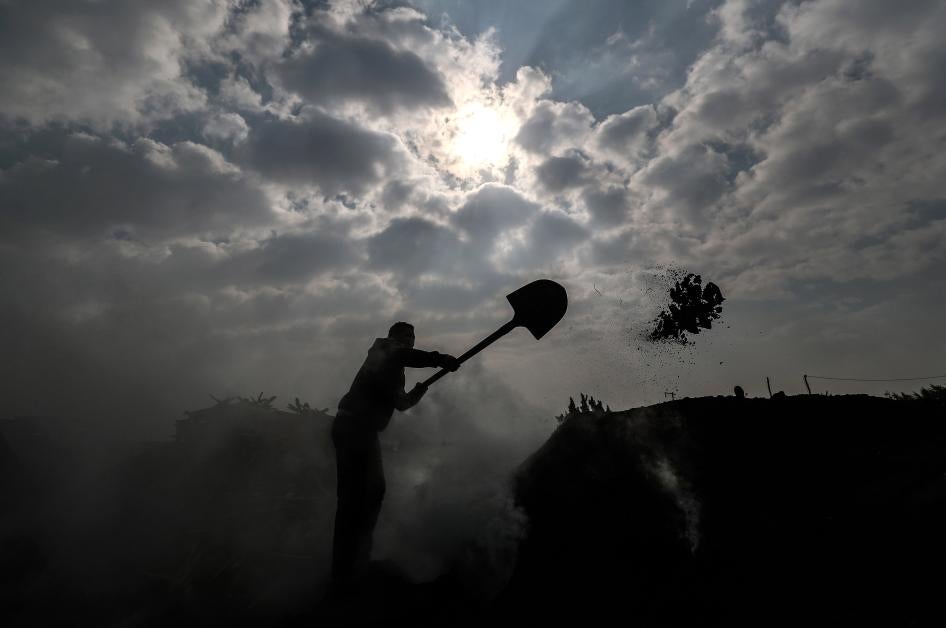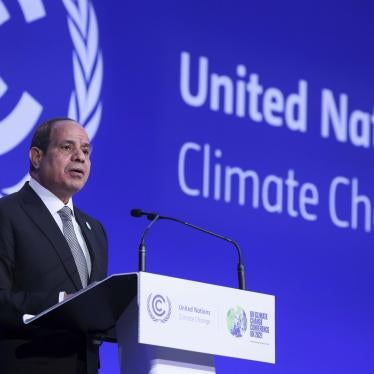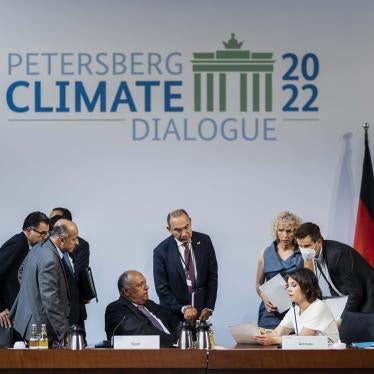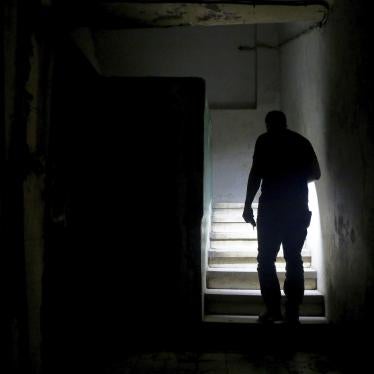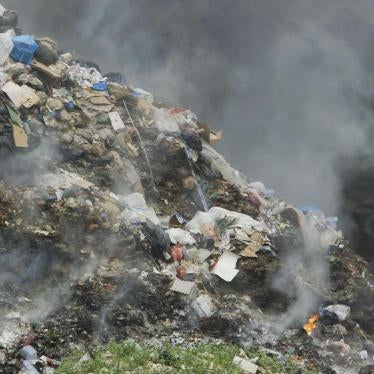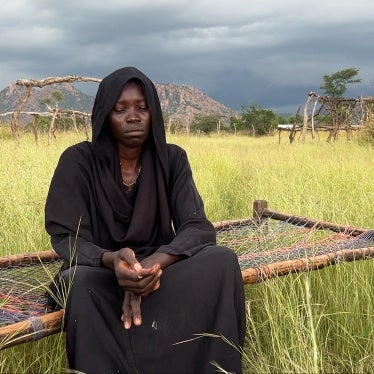Egypt began hosting the United Nations climate change summit (known as COP27) this week. In preparatory meetings, its government has criticized the hypocrisy of high-emission countries that are failing to adequately support developing countries in facing climate impacts. That criticism is entirely justified.
But the undeniable failures of high-emission countries do not alleviate the need to scrutinize Egypt’s own environmental record. There’s a very real risk that won’t happen during the climate talks in the Sinai Peninsula resort town of Sharm el-Sheikh. That is not because there hasn’t been independent environmental activism in Egypt but because Egypt’s repressive government has severely curtailed that movement as part of its efforts to silence nearly all civic and political activism, independent media, and freedom of speech.
The fact that crucial environmental issues can’t be openly debated is obviously a huge problem for Egypt. But the history of Egypt’s fierce domestic activism against coal should also be a point of sober reflection for diplomatic delegations at COP27, especially those who are already under the illusion that progress on climate ambition requires silence on Egypt’s human rights crisis.
Egypt burns coal for electricity toward industrial production. Fossil fuels—coal but also oil and gas—account for around 90 percent of total energy production, and Egypt plans to significantly increase oil and gas production. But within Egypt, there’s effectively no public campaigning against the country’s own fossil fuel production. It’s simply too dangerous.
That has not always been the case. In 2012, Egyptians Against Coal emerged as a broad-based campaign in response to the government’s interest in reincorporating coal into the country’s energy mix. In many ways, it was the high-water mark of modern Egyptian environmentalism.
Following the country’s 2011 revolution, Egypt experienced salient economic challenges—and energy shortages. In 2013, then-President Mohamed Morsi’s post-revolution government, eager to avoid even more regular domestic blackouts, halved the gas supply to cement factories, which consumed around 20 percent of domestic gas supplies.
Egypt’s cement industry, one of the largest in the region, began to lobby hard for alternatives. It wasn’t just any large business sector: The government and military have long owned many of the factories—although how much is hard to pin down.
It was at this point that a group of 10 mostly environment- and public health-focused organizations created Egyptians Against Coal. The movement harnessed long-standing concerns over air quality, which was already notoriously poor around many cement factories in Greater Cairo, Alexandria, and other cities. An Egyptian Environment Ministry report estimated that coal use in the cement industry could cost Egypt $3 billion to $5 billion a year in health costs, primarily from respiratory diseases.
Activists were also motivated by the opaque nature of the cement industry’s advocacy. “Coal for them, the bill on us” went one protest slogan, alluding to the sense that only a few wealthy businesspeople would benefit from an arrangement that would hurt many individuals.
From 2012 until mid-2014, the campaign enjoyed considerable success. It was supported by a wide variety of actors—from tourism operators concerned about potential damage to the Red Sea coastline, where some cement factories are located, to the powerful Egyptian Medical Syndicate and grassroots activists across the country. Leading environmentalists appeared regularly on TV and even featured positively in state-owned daily newspapers.
In July 2013, the military forcibly removed Morsi. Egyptians Against Coal also had the support of Laila Iskander, who was appointed environment minister by the interim government that month. A longtime environmentalist, she was the cabinet’s lone anti-coal voice. She commissioned and disseminated a report on coal’s health consequences, which was later removed without explanation from the ministry’s website.
The government of Abdel Fattah al-Sisi, who had been the defense minister under Morsi (and became president in June 2014) began to relentlessly persecute critics, dissidents, journalists, and human rights and political activists. Egypt’s environmental movement was not spared.
As the government intensified its crackdown on independent civil society, freedom of expression, and judicial freedom, the anti-coal campaign began to wither away. “We had some prominent people who showed up on TV to speak against coal, but suddenly they started to quit the campaign,” an environmental activist told Human Rights Watch. “One was harassed by security at the airport, so he quit.”
A domestic legal case against coal ground to a halt. Mentions of Egyptians Against Coal disappeared from media. And public protests, previously energetic and frequent, became too dangerous.
In April 2014, the Sisi government decided to permit coal use for heavy industry. Soon after, Iskander was removed and replaced by Khaled Fahmy, who also served as Iskander’s predecessor. Some activists referred to him as the “minister of coal” due to his strong support for the fuel during his first stint in government.
Fast forward to today. Egyptian authorities effectively prohibit journalists and advocates from working on sensitive environmental issues. They are barred from studying the impact on local communities and the environmental toll of fossil fuel operations, including production, refining, and export operations. They are also barred from determining the impact of Egypt’s vast and opaque military business activities—such as destructive forms of quarrying, water bottling plants, and some cement factories—as well as of so-called national infrastructure projects—such as a new administrative capital—many of which are associated with the president’s office or the military.
Meanwhile, Egypt has taken few steps to move away from the production and use of fossil fuels and is instead increasing the production of both oil and methane gas, with the hopes of becoming a leading methane gas exporter. According to the Climate Action Tracker, Egypt is responsible for over a third of total methane gas consumption in Africa and is the continent’s second-largest producer. The organization rates Egypt’s overall climate targets and policies as “highly insufficient.”
For those attending COP27, the summit presents a clear opportunity to scrutinize the host government’s own climate rhetoric and reality. But there is also an obligation to urge Sisi to release his chokehold on the country’s freedoms of assembly, association, and expression during COP27 and afterward.
The debate among diplomats at COP27 over whether ambitious climate policies or protecting human rights should come first presents a false dichotomy. Robust climate policies require robust engagement from civil society. Climate action needs more critical voices, not fewer.


